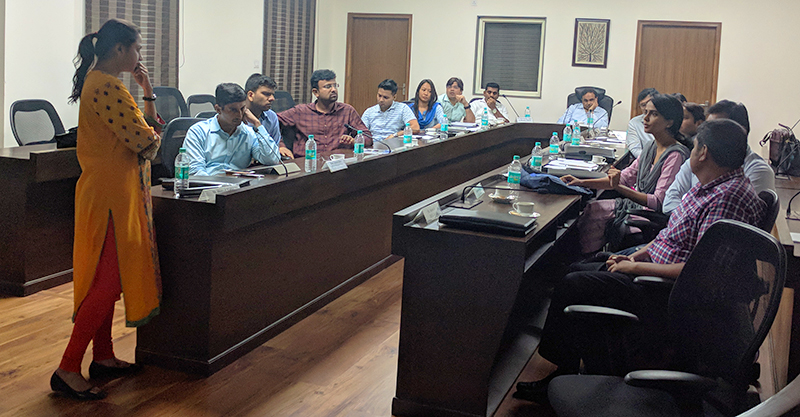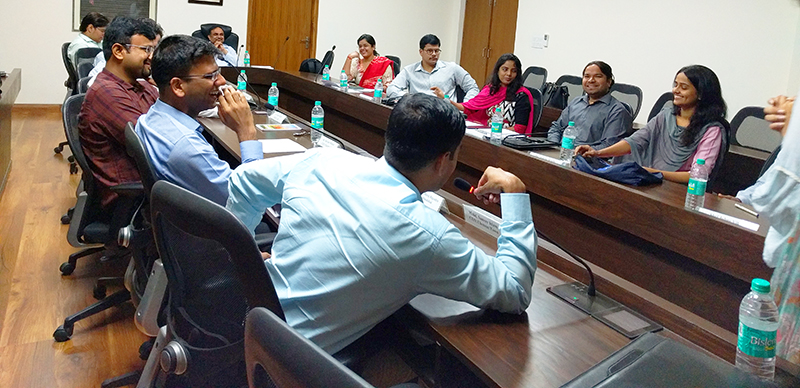On 21st August 2018, the Centre for Social Research conducted one day training on Gender Equality and Sexual Harassment at Workplace Act. A total of 16 participants attended the training at National Institute of Defence Estate Management (NIDEM). The participants were Chief Executive Officers of Cantonment Boards and Defence Estate Officers from New Delhi, Lansdowne (Uttarakhand), Jorhat (Assam), Chakrata (Uttarakhand), Cannanore (Kerala), Ranikhet (Uttarakhand), Pachmarhi (Madhya Pradesh), Babina (Uttar Pradesh), Kasauli (Himachal Pradesh), Clement Town (Uttarakhand), Fatehgarh (Uttar Pradesh), Roorkee (Uttarakhand) and Barrackpore (West Bengal).


The first half of the one day training dealt in gender concepts and the second half dealt with the Sexual Harassment at Workplace Act (2013). The outcome of the training was enhanced awareness of the law and open forum discussion on gender equality. The initiative was led enthusiastically by the Assistant Director of NIDEM, Mr. M. Punith Kuttaiah.


The one day training on gender equality and sexual harassment of women at workplace was administered through PowerPoint presentation, open forum discussion, screening of audio-visuals and mind stimulating questions that the participants were required to answer through the paper-pencil method. The participants discussed new information they received at the training with possibilities of how to implement the same in their respective workplaces. The most discussed topics were – Identifying genuine case of sexual harassment and administering appropriate punishment for the same. The participants also shared their concern over formation of Internal Complaints Committee (ICC) in an organizational setup where women employees are few and not in the position to be a part of the ICC. The participants were riveted in the gender discourse and enthusiastically participated in the same owing to the fact that they were discussing their opinions and tallying it with several manifestations of gender equality.


With regards to implementation of Sexual Harassment at Workplace Act, the participants concluded that individual cases of harassment have to be analyzed in the context of enactment and appropriate punishment should be decided upon by consultation with higher authorities and the ICC in their organization. The participants took cognizance of the task that lay ahead of them regarding creation of gender equal workforce, prevention of sexual harassment and discouraging misuse of the law at workplace.
Established in 1997, the Gender Training Institute (GTI) works to facilitate women’s empowerment and social justice through capacity building and training related activities. In an effort to mainstream gender in all aspects of development, GTI conducts long term training programs in parallel with stand-alone capacity building trainings, awareness generation programs, and continuous development of new training materials.
Our training capacity under GTI extends to gender equal political participation, execution of law, good governance, and development and implementation of legislation as it relates to gender. GTI has undertaken gender sensitization for organisations from a range of professional sectors, including government officials, educators, law enforcement officials, international development specialist, corporate agents and non-profit actors.




